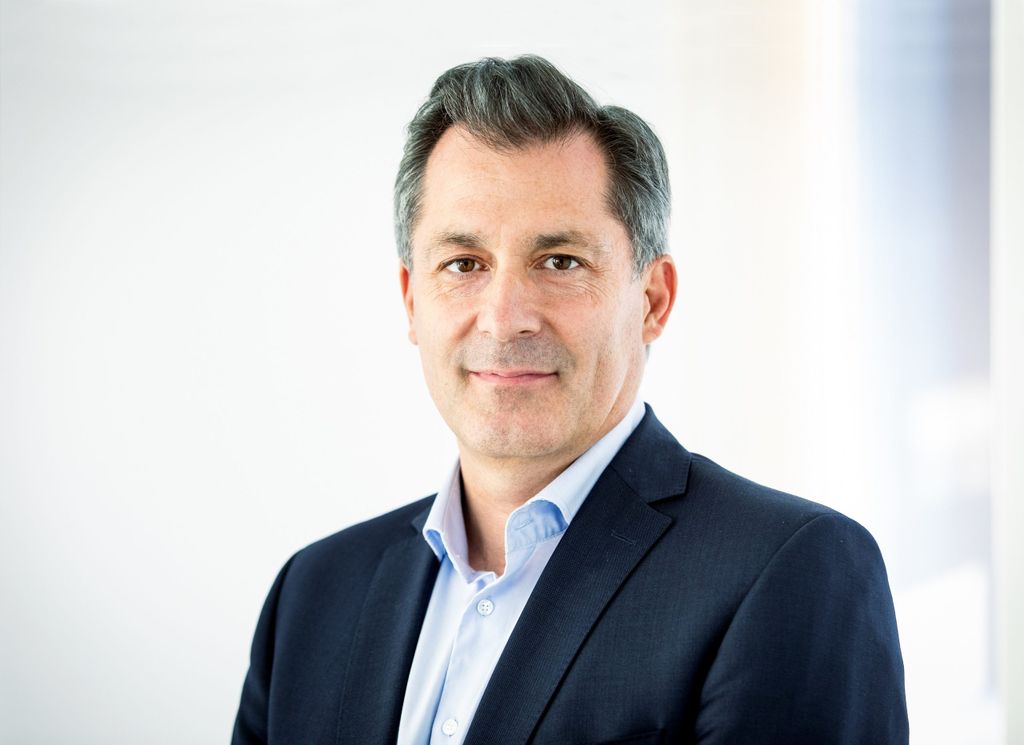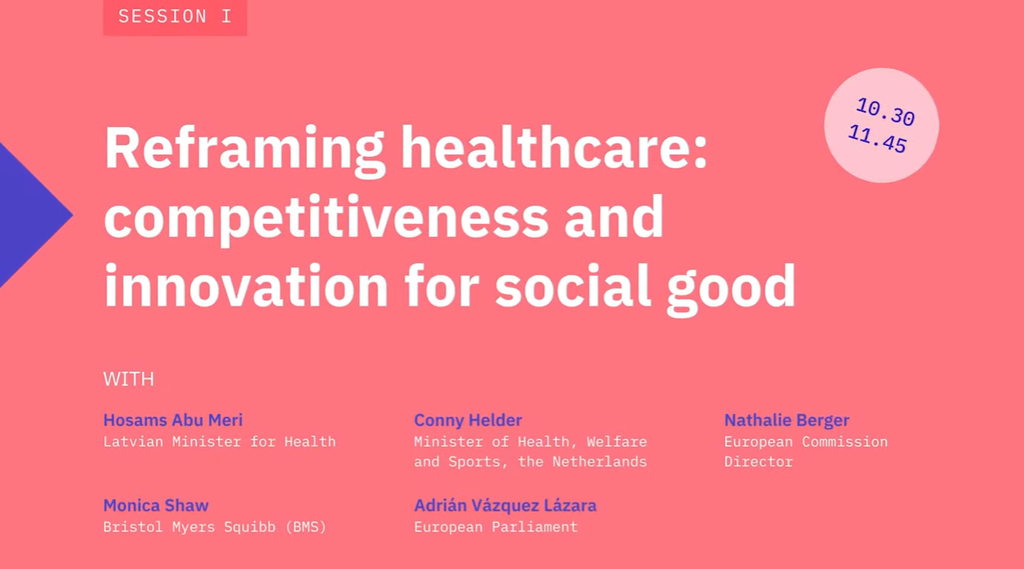Europe's moment: advancing clinical research and health innovation
Next event In person & online

- Area of Expertise
- Sustainable Livelihoods
Sustainable Livelihoods

Vice-President for International Policy and Government Affairs at Bristol Myers Squibb
Technology and healthcare are converging, making this an exciting time for biopharmaceutical innovation. The gradual integration of these sectors has a key role to play in fostering diversity in healthcare research, greater healthcare equity, faster development of new medicines, better diagnosis and treatment of patients and more personalised care.
AI is reshaping cancer diagnosis and treatment
In our collaboration with Friends of Europe on ‘decoding bias in healthcare research and delivery’, Bristol Myers Squibb explored how a digital revolution in healthcare is helping patients overcome serious diseases. Two of our leading scientists – Samit Hirawat, Chief Medical Officer, Drug Development, and Ridwaan Jhetam, Head of Worldwide Medical, Hematology – navigated the intersection of healthcare and technology, highlighting upsides for the EU’s scientific ecosystem and, in turn, for patients. Their expertise and experience informed the discussions with Friends of Europe, illustrating what EU policymakers, acting with others, can do to unlock the power of digitalisation in healthcare.
Constructive stakeholder collaboration can improve healthcare innovation in the EU. By working together – as industry, policy, patient and clinical leaders – we can positively advance the prospect of better patient outcomes.
Take cancer. Globally, some ten million people die from the disease every year, according to the World Health Organization. The European Commission reports that Europe accounts for a quarter of global cancer cases. At Bristol Myers Squibb, partnership between the computational, clinical and biology research teams is expediting the discovery and delivery of targeted cancer treatments. Digitalisation is a big part of that collective effort. With high mortality and incidence rates for cancer, scientists’ work is critical.
Artificial intelligence is the ability of a machine to learn patterns from datasets and use the insights to improve decision-making. Our scientists tell us that AI is reshaping cancer diagnosis and treatment. It is increasingly used in diagnostic medicine. AI-based risk profiling is leading to early diagnosis of oral cavity, breast and cervical cancer. AI gives doctors the tools to improve treatment decisions across many disease areas with greater precision. The future is exciting.
We need to reach patients who typically do not have the chance to take part in clinical research or who face barriers to clinical trial participation
Digitalisation in healthcare helps in other ways, too. Online medical education, as well as virtual scientific exchange, are becoming more popular as ways to allow doctors to make the right treatment decisions. Digital tools are enabling the remote processing of biopsies and telepathology to improve cancer diagnoses. Digital health is enabling more online consultations, helping to reach underrepresented groups like the elderly, socially disadvantaged and people living in rural areas.
Alongside digitalisation, diversity in research improves healthcare. Clinical trials are the foundation for healthcare research. Through the data they generate, clinical trials help to answer scientific questions and provide a better understanding of the efficacy and safety of investigational medicines and their potential as treatment options.
Ensuring that people from diverse backgrounds and geographies participate in clinical trials is key to advancing health equity and improving science. People of different ages, races, ethnicities, genders and origins may react differently to certain medicines. Clinical trials should reflect the population impacted by the disease. To achieve these goals, we need to reach patients who typically do not have the chance to take part in clinical research or who face barriers to clinical trial participation. Where someone lives should not determine whether they can take part in a clinical trial. Science should be for everyone, everywhere.
Bristol Myers Squibb’s patient recruitment in Europe represents 42% of our global early and full development trials footprint. Across Europe last year, we ran more than 2,000 clinical trials, involving over 29,000 patients across 7,500 study sites. Looking ahead, our objective is to improve the diversity of our clinical trials in Europe.
We see opportunities to better integrate innovation into healthcare. That task depends, in part, on the operating environment. EU policymakers are reviewing the existing framework for medicines through the General Pharmaceutical Legislation (GPL). This is a unique opportunity for policymakers to improve healthcare standards, future-proof the regulatory system and make the EU more attractive for investments in the medicines of the future.
The GPL revision, as well as related policy initiatives like the European Health Data Space (EHDS), Accelerating Clinical Trials in the EU and the AI Act, can significantly improve the innovation environment. We want to see more European patients in clinical trials and more of them getting faster access to new medicines. We want to see the EU attracting new investments in research and manufacturing. We want the EU to be a global innovation leader.
None of this is inevitable. It will take collaboration and sensible policymaking. Now is the time for dialogue leading to a shared destination.
This article is a contribution from a member or partner organisation of Friends of Europe. The views expressed in this #CriticalThinking article reflect those of the author(s) and not of Friends of Europe.
You may also like…
Next event In person & online

Past event In person & livestreamed

Past event In person

Past event In person & livestreamed





Stay informed
We use cookies and similar technologies to adjust your preferences, analyze traffic and measure the effectiveness of our campaigns. Learn more about our privacy policy.